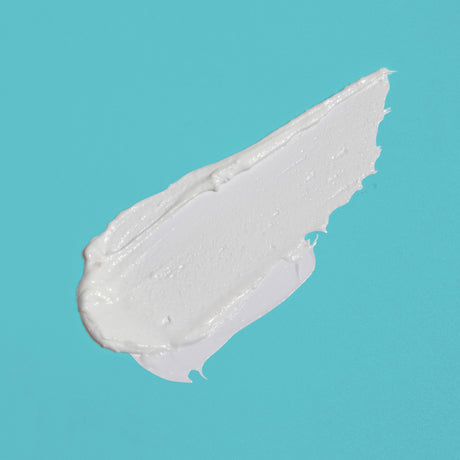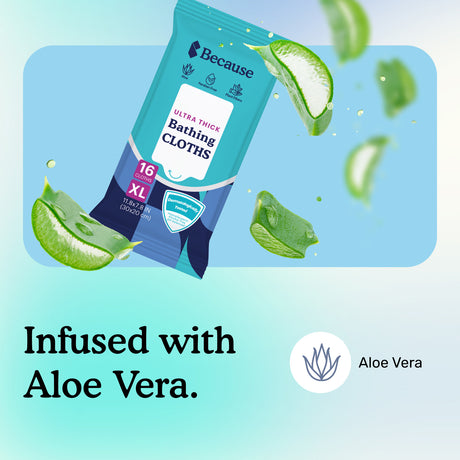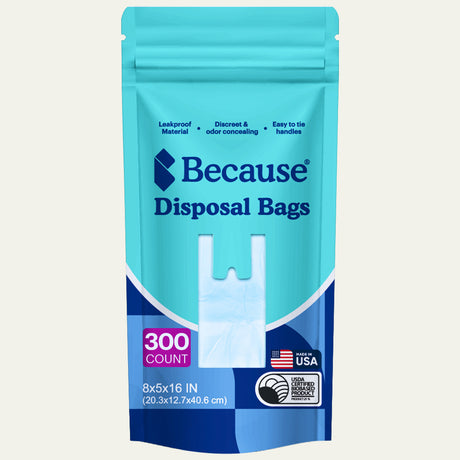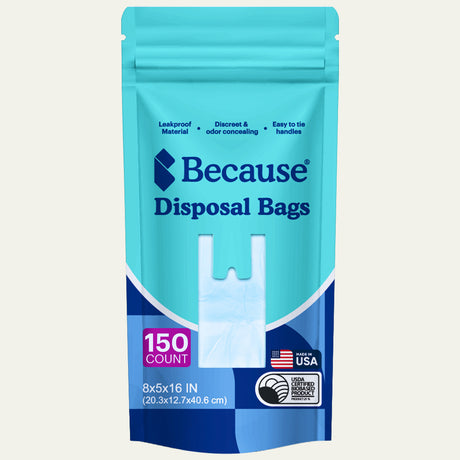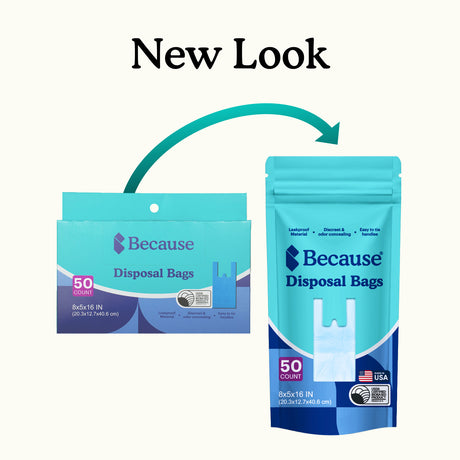Urinary tract infections (UTIs) can be incredibly uncomfortable and inconvenient, disrupting your daily routine with persistent pain and frequent trips to the bathroom. While the only definitive way to get rid of a UTI is through a visit to your doctor and a prescribed course of antibiotics, there are several effective at-home remedies that can help alleviate symptoms and support your recovery.
Moreover, taking preventive measures can significantly reduce the likelihood of future infections. In this blog, we'll explore eight practical tips, from hygiene tips to OTC supplements, to ease the discomfort of a UTI and bolster your defenses against recurring infections. By incorporating these strategies into your routine, you can find relief and promote long-term urinary health.

1. Go to your Doctor and Get an Antibiotic
2. Try Over the Counter UTI Medicine
Over-the-counter (OTC) UTI medicines can be a valuable addition to your treatment regimen, helping to alleviate symptoms while you wait for antibiotics to take effect. These OTC products come in various forms, including pain relievers like phenazopyridine, which can reduce urinary discomfort and urgency, and cranberry supplements that may help prevent bacteria from adhering to the bladder wall.
Additionally, probiotics specifically formulated for urinary health can support your body's natural defenses and restore balance to your urinary tract. While these remedies do not cure UTIs, they can provide significant relief and support overall urinary health.
3. Get More Sleep
Getting adequate sleep is essential for maintaining a strong immune system, which is crucial in both preventing and fighting off UTIs. Quality rest allows your body to repair and strengthen its defenses, making it more effective at warding off infections. Additionally, sufficient sleep helps reduce stress, which can otherwise weaken your immune response and increase your susceptibility to infections like UTIs.
4. Drink Plenty of Water
Staying hydrated is a fundamental aspect of both treating and preventing urinary tract infections. Drinking plenty of water helps to flush bacteria out of the urinary tract, reducing the concentration of harmful pathogens and aiding in the healing process. Hydration also promotes more frequent urination, which is crucial for clearing the bladder of irritants that can cause infection.
Furthermore, maintaining adequate fluid intake can dilute your urine, making it less irritating to the bladder lining and easing discomfort. Regular consumption of water not only supports the body's natural detoxification processes but also helps to create an environment that is less conducive to bacterial growth, thereby lowering the risk of recurrent UTIs.

5. Avoid alcohol and caffeine
Avoiding alcohol and caffeine is important when dealing with a UTI, as both substances can irritate the bladder and exacerbate symptoms such as urgency and pain. Both alcohol and caffeine are diuretics, which can lead to dehydration and reduce the effectiveness of the body’s ability to flush out bacteria. By steering clear of these irritants, you can help to minimize bladder irritation and support a quicker recovery.
6. Drink 100% Cranberry Juice
Drinking 100%, sugar-free cranberry juice can help prevent UTIs by inhibiting bacteria from adhering to the bladder walls. Studies have shown that regular consumption of cranberry juice can reduce the incidence of UTIs by more than 25%, making it a beneficial addition to your preventive measures.

7. Take a Hot Bath or Apply Heat
Taking a hot bath or applying heat to the lower abdomen can help ease UTI symptoms by soothing muscle cramps and alleviating pain. The warmth increases blood flow to the pelvic area, promoting relaxation and providing relief from the discomfort associated with UTIs.
8. Try Home Remedies for UTI Prevention
Home remedies can play a vital role in preventing urinary tract infections by promoting a healthy urinary tract environment. Incorporating these simple yet effective practices into your daily routine can help reduce the risk of developing UTIs and support overall urinary health.
Probiotics
Probiotics can significantly impact urinary tract health by introducing beneficial bacteria that help maintain a balanced microbial environment. These good bacteria compete with harmful pathogens, reducing their ability to colonize the urinary tract and cause infections. Regular intake of probiotics, through supplements or probiotic-rich foods, has been shown to lower the incidence of UTIs and support the body's natural defenses against recurrent infections.
One large clinical study found that specific strains reduced UTI occurrence in women by 50%.
Vitamin C
Vitamin C can help prevent UTIs by acidifying the urine, creating an environment that is less favorable for bacterial growth. Additionally, it boosts the immune system, enhancing the body's natural defense mechanisms against infections.
D-mannose
D-mannose, a type of sugar, can help prevent UTIs by preventing E. coli bacteria from adhering to the walls of the urinary tract. Studies have shown that regular intake of D-mannose can significantly reduce the risk of recurrent UTIs.
Uva-ursi (bearberry)
Uva-ursi, also known as bearberry, is a herbal remedy that can help prevent UTIs due to its antibacterial and anti-inflammatory properties. The active compound in uva-ursi, arbutin, gets converted into hydroquinone in the body, which has been shown to combat UTI-causing bacteria and reduce inflammation of the urinary tract walls. However, it should be used cautiously and for short periods due to potential side effects.
Garlic
Garlic has shown promise in preventing UTIs due to its potent antibacterial properties. Studies have indicated that garlic extract can effectively inhibit the growth of UTI-causing bacteria, including antibiotic-resistant strains. This is primarily attributed to compounds such as allicin, which disrupt bacterial communication and colony formation, reducing their ability to thrive in the urinary tract.

What Happens if I Don’t Treat a UTI?
Failing to treat a UTI with antibiotics can lead to serious complications. Initially, the infection may spread from the bladder to the kidneys, causing pyelonephritis, a more severe infection that can lead to permanent kidney damage. Symptoms of an untreated UTI can worsen, including increased pain, confusion, fever, and even blood in the urine. If the infection continues to spread, it can enter the bloodstream, resulting in sepsis, a potentially life-threatening condition characterized by a systemic inflammatory response.
Additionally, untreated UTIs can increase the risk of recurrent infections and further complications such as bladder dysfunction. Prompt antibiotic treatment is essential to prevent these severe outcomes and to ensure complete eradication of the bacteria causing the infection
How to Prevent UTIs
Preventing UTIs involves a combination of good hygiene, lifestyle practices, and dietary adjustments. Here are some effective strategies to help reduce your risk:
- Maintain Proper Hygiene: Always wipe from front to back after using the toilet to prevent bacteria from the anal region from spreading to the urethra. Use mild, unscented soap and water to clean your genital area. Avoid using harsh soaps, douches, or feminine hygiene sprays that can irritate the urethra and genital area.
- Urinate Regularly and Completely: Make sure to urinate regularly and avoid holding urine for extended periods, as this can encourage bacterial growth. Take your time to ensure your bladder is fully emptied each time you urinate.
- Stay Hydrated: Aim to drink at least 6-8 glasses of water or other liquids daily to help flush bacteria out of your urinary tract. Limit intake of caffeine and alcohol, as they can irritate the bladder and dehydrate your body.
- Post-Sexual Activity Practices: Always urinate after sexual activity to help flush out any bacteria that may have been introduced during intercourse. Ensure both you and your partner maintain good hygiene before and after sexual activity.
- Choose the Right Clothing: Opt for cotton underwear and loose-fitting clothes to keep the genital area dry. Moist, tight clothing can create an environment conducive to bacterial growth. After swimming or exercising, change out of wet clothes as soon as possible to prevent bacteria from thriving.
- Consider Probiotics and Diet: Incorporate probiotics into your diet to maintain a healthy balance of bacteria in your gut and urinary tract. Eating foods rich in vitamin C and drinking cranberry juice can help acidify the urine and prevent bacterial growth. A diet high in sugar can also lead to an increase in UTIs.
- Avoid Irritants: Avoid using scented feminine products, strong laundry detergents, and bubble baths that can irritate the urethra. If you are prone to UTIs, consider switching from diaphragms or spermicides to other forms of birth control.
- Add a Supplement: If you struggle with frequent, recurrent UTIs, consider adding a supplement that has ingredients such as cranberry extract, D-mannose, and/or uva-ursi to help support your urinary tract daily.
By incorporating these practices into your daily routine, you can significantly reduce your risk of developing UTIs and maintain a healthy urinary tract. Always consult with a healthcare professional for personalized advice and treatment options.
FAQs About UTIs
How do I get rid of a UTI without going to the doctor?
You cannot cure a UTI without seeing a doctor. UTIs require antibiotic treatment, which can only be prescribed by a healthcare professional. Home remedies and over-the-counter products may help alleviate symptoms temporarily, but they will not eliminate the infection. It is crucial to seek medical advice to prevent complications and ensure proper treatment.
How long does a UTI last?
A UTI typically lasts 1 to 3 days with appropriate antibiotic treatment. If left untreated, the symptoms can persist and worsen, potentially leading to more severe infections such as kidney infections. Always follow your doctor’s instructions and complete the full course of antibiotics to ensure the infection is fully eradicated.
What does a UTI feel like?
A UTI often causes symptoms such as a burning sensation during urination, frequent and urgent need to urinate, cloudy or strong-smelling urine, and lower abdominal pain. Some people may also experience fatigue and fever, especially if the infection has spread to the kidneys .
Can a UTI go away on its own?
While it is possible for mild UTIs to resolve on their own, it is not advisable to rely on this outcome. Untreated UTIs can lead to more serious complications, such as kidney infections and sepsis. Prompt medical treatment with antibiotics is the safest and most effective way to cure a UTI and prevent further health issues.
Is a UTI the same thing as a bladder infection?
A UTI is a general term for infections in any part of the urinary system, which includes the kidneys, ureters, bladder, and urethra. A bladder infection, also known as cystitis, is a type of UTI that specifically affects the bladder. Thus, while all bladder infections are UTIs, not all UTIs are bladder infections.
Can a UTI lead to urinary incontinence?
A UTI can temporarily lead to urinary incontinence due to irritation and inflammation of the bladder, which can cause a sudden and intense urge to urinate. Once the infection is treated, incontinence symptoms typically resolve. However, recurrent UTIs may contribute to ongoing bladder control issues, especially in individuals with underlying conditions.
Sources:
National Institute of Diabetes and Digestive and Kidney Diseases. (2024, Apr.). Bladder infection (urinary tract infection) in adults. Definition & Facts of Bladder Infection in Adults. Retrieved from https://www.niddk.nih.gov/health-information/urologic-diseases/bladder-infection-uti-in-adults/definition-facts
Munez, C. (2023, April 27). Cranberry juice found to reduce urinary tract infections, study confirms. HealthDay News.Retrieved from https://www.upi.com/Health_News/2023/04/27/cranberry-juice-urinary-tract-infection/1331682528254/
Stephens, K. (2019, Oct. 07). Probiotics for UTI- A Microbiologist Reviews the Research. Optibac Probiotics. Retrieved from https://www.optibacprobiotics.com/uk/professionals/latest-research/female-health/probiotics-for-uti
Ala-Jaakkola, R., Laitila, A., Ouwehand, A.C. et al. Role of D-mannose in urinary tract infections – a narrative review. Nutr J 21, 18 (2022). https://doi.org/10.1186/s12937-022-00769-x

